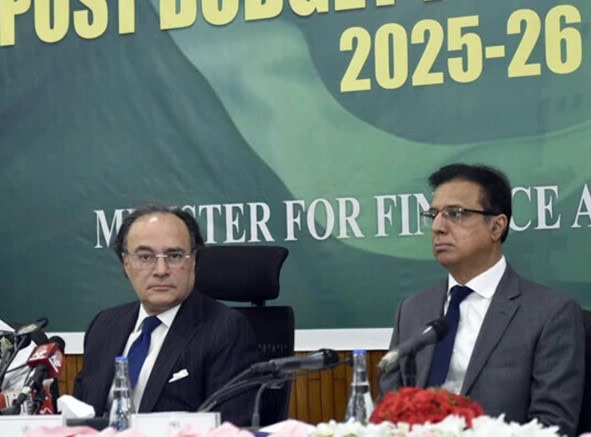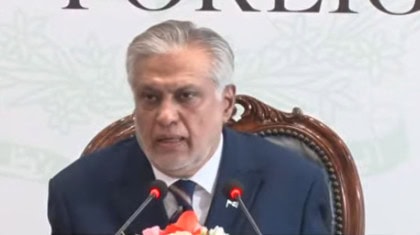ISLAMABAD – Federal Finance Minister Muhammad Aurangzeb said that the government provided as much relief as possible to the salaried class in the budget for Fiscal Year-2025-26.
Addressing a post-budget press conference on Tuesday, Aurangzeb stated that the government prioritized an export-oriented economy, adding that significant tariff reforms had been introduced for the first time in 30 years.
Out of 7,000 tariff lines, customs duty has been completely abolished on 4,000 items while duties have been reduced on an additional 2,700 items. These measures are expected to benefit exporters substantially.
He emphasized that providing relief to the salaried class was a personal priority for both Prime Minister Shehbaz Sharif and himself. “We aimed to link pensions and salaries to inflation and offered relief accordingly,” he said. Over Rs400 billion in tax has been collected through improved enforcement, and future legislation would be discussed in Parliament to strengthen the process.
Aurangzeb further noted that the government plans to provide loans to small farmers and has consulted the relevant board to avoid imposing additional taxes on the agriculture sector.
“These figures reflect only the first year,” he said. “The government will continue to reduce tariffs in the coming years, targeting an overall 4% reduction in the system.” He highlighted that structural reforms have already begun and will continue progressively.
Discussing tax policy, the finance minister said the salaried class has been split into different income slabs, and the government started reducing the super tax on mid-sized corporations — even a 0.5% cut is a significant signal of policy direction.
“We are working to reduce transaction costs, ensuring that the buyer receives more relief than the seller,” he said.
He also announced that Federal Excise Duty (FED) has been abolished in certain areas which would also reduce transaction costs.
Aurangzeb assured that no changes would be made without consultation with the provinces. “The NFC Award is scheduled for October, and no adjustments will be made before that. All discussions on expenditures and revenues are being conducted with mutual consultation,” he said.
Commenting on salary increases for parliamentarians, he pointed out that the last hike was in 2016.
“Any salary raise through borrowing needs to be balanced. Salaries were increased in line with inflation. In my experience, the prices rarely come down once they rise,” added the finance minister.
Meanwhile, FBR Chairman Rashid Langrial, speaking during the press conference, said two parallel economies currently operate in the country, one of which is the formal retail sector. He said a surcharge related to power bills has been amended and added that reforms are underway in the power sector, though no change in electricity rates is currently planned.
Bulls propel PSX to new peak of 124,000 as investors respond positively to budget



















